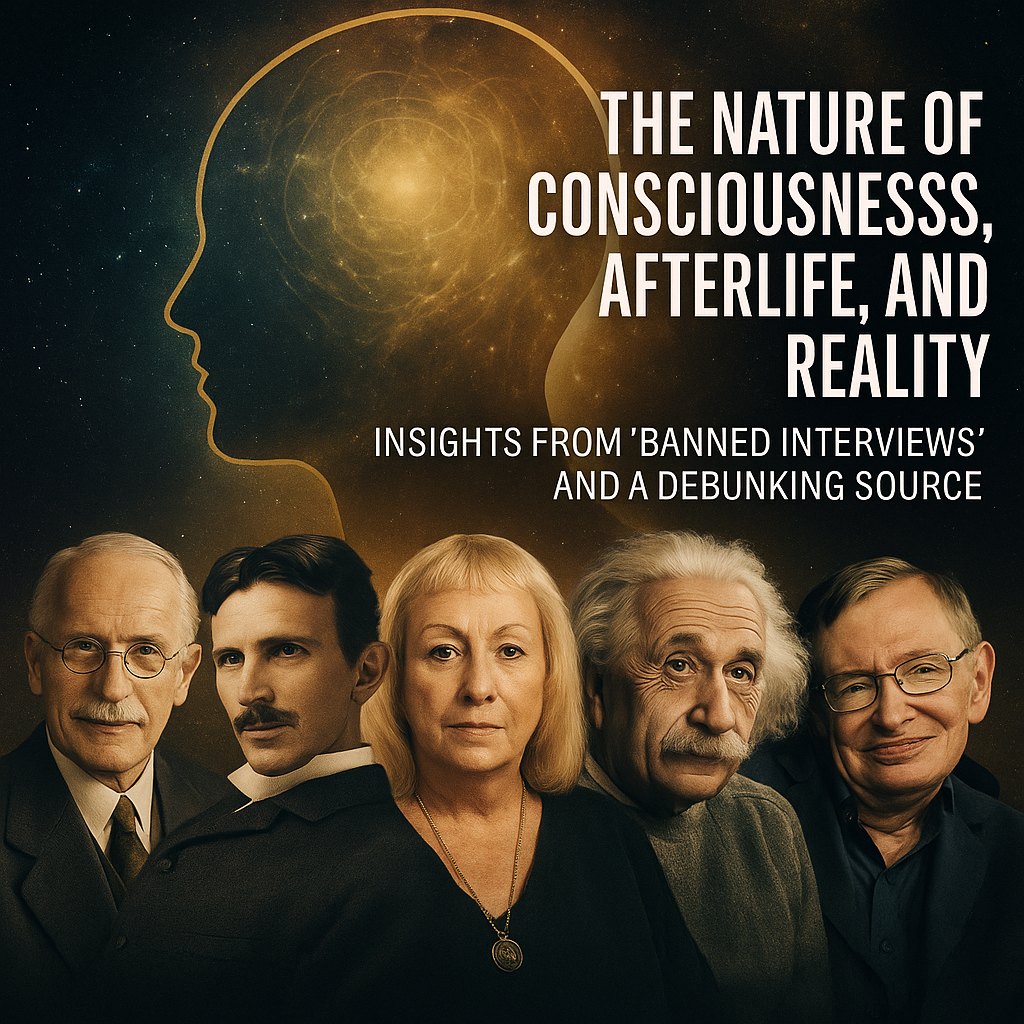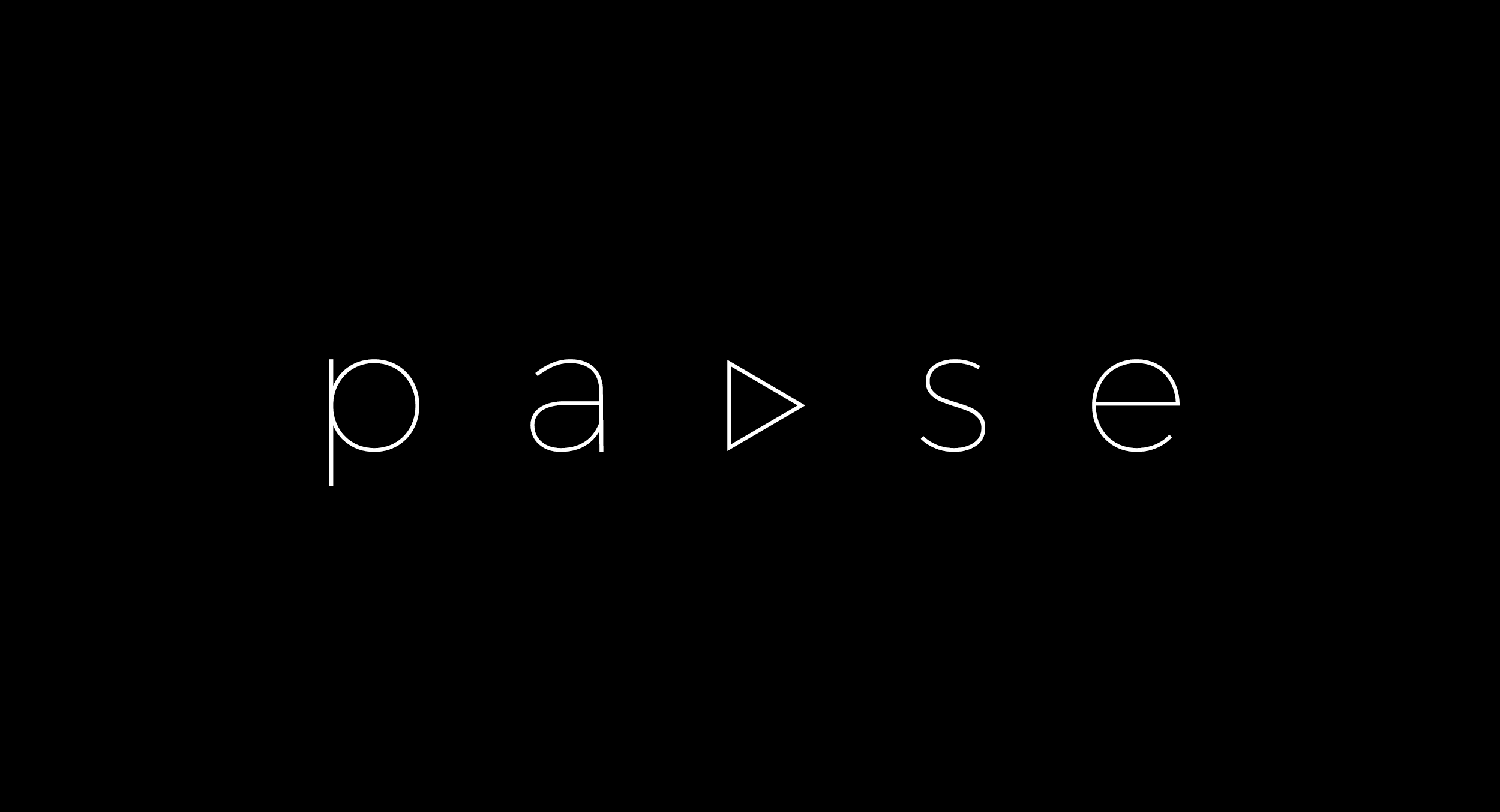Blog
https://newsletter.intellectual-enlightenment.com/p/afterlife-and-consciousness-banned
- This detailed document synthesizes the main themes, important ideas, and key facts from the provided sources regarding the afterlife, consciousness, and the nature of reality, incorporating direct quotes where appropriate.
The Nature of Consciousness, Afterlife, and Reality - Insights from "Banned Interviews" and a Debunking Source
I. Executive Summary
This article compiles insights from alleged "banned interviews" with Albert Einstein, Nikola Tesla, Carl Jung, Sylvia Browne, and Stephen Hawking, all discussing the afterlife, the nature of consciousness, and reality beyond conventional scientific understanding. These sources, presented as revelations, posit that consciousness survives bodily death, often through transformation, re-integration with a universal field, or reincarnation, and that the universe operates on principles beyond current mainstream science, hinting at intelligent design and interconnectedness.
Crucially, one source, "Einstein's Afterlife: Debunking the Banned Interview Myth," directly challenges the authenticity of the "banned Einstein interview" narratives. It asserts that there is no historical record or credible evidence to support such claims, categorizing them as modern myths or fictional thought experiments. While this debunking source primarily focuses on Einstein, its methodological skepticism is relevant for evaluating the other "banned interview" claims.
Despite the authenticity questions, the collective themes from these "banned" interviews offer a compelling alternative perspective on fundamental questions of existence, death, and human purpose, rooted in a blend of physics, metaphysics, and spiritual insight.
II. Core Themes and Key Ideas from the "Banned Interviews"
The "banned interviews" present a consistent, interconnected worldview that largely transcends traditional scientific materialism and religious dogma.
A. Consciousness as Primary and Non-Local; Survival of Consciousness After Death
Consciousness is not a product of the brain, but fundamental: All sources assert that consciousness is not merely an emergent property of the brain but a primary, fundamental aspect of reality. Einstein, in his alleged interview, states, "Consciousness itself is not a product of matter. It is primary. The entire universe exists because someone perceives it." Similarly, Hawking's alleged interview posits consciousness as "quantum information distributed across space and time," and Jung states, "the soul... doesn't belong to the body it uses the body like a driver uses a car."
The Brain as an Antenna/Receiver: The brain is described as a receiver or antenna for consciousness, not its generator. Einstein (allegedly) explains, "The brain is an antenna, a receiver, and the source lies beyond time and space."
Death as Transformation, Not Annihilation: Death is consistently presented as a transition or transformation, not an end. Einstein (allegedly) compares consciousness to a wave: "When the body dies consciousness does not cease to exist. It returns to the ocean." Hawking (allegedly) states, "death is not the end, it is a transformation."
The "Field of the Soul" and Information Preservation: Tesla (allegedly) speaks of a "field of the soul" that exists and influences matter, observing "how energy leaves the body of the deceased but it does not disappear it transitions... it retains form as if something exits without losing itself." Hawking (allegedly) theorizes about a "cognitive trace program" where consciousness is an "information structure" that "obeys the laws of conservation."
B. The Universe as Conscious, Designed, and Interconnected
Intelligent Design/Higher Power: The universe is presented as being intelligently designed, not random. Einstein (allegedly, in a second "banned" interview) states, "We were created... The universe is like that it seems chaotic until you rise above you mean there's some level at which everything becomes ordered exactly and at that level everything speaks of intelligence not human but universal." This higher power is seen as "logic, beauty, order, energy beyond the bounds of time," rather than a personal deity.
Unity and Interconnectedness: There is a strong emphasis on the interconnectedness of all things and beings. Einstein (allegedly) states, "Connection is the foundation of existence. If particles can be connected across space why cannot consciousnesses be connected across death?" He further asserts, "We are all one." Tesla (allegedly) points to "the connection between souls," exemplified by shared experiences like fainting at a friend's death.
Reality as Vibration/Illusion of Density: Tesla (allegedly) describes reality as an "illusion of density," where "matter is compressed light everything consists of vibrations and vibrations are not just physics they are consciousness memory soul."
C. Purpose of Life: Learning, Growth, and Remembering
Life as a School/Lesson: Life on Earth is consistently framed as a learning experience or "school" for the soul's evolution. Jung (allegedly) states, "Everything we experience here is a school, a lesson, not the final truth." Tesla (allegedly) says, "We come to learn to suffer to love all at once... this is not a prison... it is a school."
Suffering as Growth: Suffering is not punishment but a necessary catalyst for spiritual development. Einstein (allegedly) says, "Suffering is a school. Without the experience of pain consciousness cannot develop."
Forgetting and Remembering: Souls are said to forget their true nature and past lives upon birth, with the purpose of life being to "remember." Sylvia Browne (allegedly) states, "you are not a mother not a husband... you are a soul playing these roles to remember who you are beyond them all." Jung (allegedly) adds, "We come back until we remember who we are."
Free Will and Choice: While a grand design may exist, individuals retain free will in their choices and their path to awakening. Einstein (allegedly) states, "Free will is the highest law." Sylvia Browne (allegedly) emphasizes that "fear is the main barrier to evolution... only in depth is freedom."
D. Reincarnation and Soul Evolution
Cycles of Return: Many sources suggest a cyclical return of consciousness. Einstein (allegedly) suspects "the cycle does not end. Consciousness returns again and again to learn to grow and to bring light into the world." Jung (allegedly) "believe[s] in memory and in repetition. We come back until we remember who we are."
Choice in Reincarnation/Liberation: The return is not always automatic. Einstein (allegedly) says it is "a choice. Free will is the highest law." When a soul is "ready," it can achieve "liberation," dissolving into a "light" or "source" without losing individuality but rather transforming it.
"Compatible Consciousnesses" and Purposeful Return: Hawking's (allegedly) "cognitive trace hypothesis" and subsequent findings suggest that "not all patterns are compatible, only those that carry development continue... this is the natural selection of consciousness." Certain "compatible consciousnesses" or "carriers of light" (as Jung allegedly called them) return to "help humanity take the next step," especially during times of crisis.
E. Nature of "Hell" and "Judgment"
Hell as a State, Not a Place: Sylvia Browne (allegedly) states, "hell is not a place it's a state a vibration and you can end up there while still alive... hell is when you live in lies and know it but continue anyway."
Self-Imposed Consequence, Not External Punishment: There is no external punishment or judgment, only consequences that are a "mirror" of one's actions. Sylvia Browne (allegedly) explains, "no punishment there are consequences what we call karma doesn't come as revenge it comes as a mirror." Tesla (allegedly) states that after death, one faces "not before a court before ourselves."
Stuck Souls: Souls can become "stuck" or "trapped" in loops of their own pain, fear, or unresolved issues, unable to move on. Sylvia Browne (allegedly) describes seeing "those who were stuck not because they were punished but because they hadn't let go." Tesla (allegedly) describes "fields of fear where there was pain war violence the ether becomes heavy these places are traps."
F. Suppression of Truth and Humanity's Readiness
Truth is Dangerous and Suppressed: A recurring theme is that this knowledge is deliberately suppressed or hidden because it challenges existing power structures (religion, politics, science) that thrive on control and fear. Einstein (allegedly) states, "The truth is both too simple and too dangerous. The scientist fears being ridiculed. Religion fears losing power. Politicians fear losing control. Truth is free. And everyone who is accustomed to ruling fears freedom." Tesla (allegedly) states, "They destroyed it [the device to catch consciousness transition] those who fear the truth who those who rule through fear religion power corporations if death is not the end then fear loses its power and a person without fear is free and the free cannot be controlled."
Humanity's Readiness: The truth is withheld until humanity is "ready" to receive it without distortion. Einstein (allegedly) says, "If this truth becomes known too soon it can be distorted used for power for manipulation."
Merging of Science and Spirituality: A future vision where science and spirituality merge is predicted. Einstein (allegedly) believes, "Soon science and spirituality will merge and then a path will open."
III. Einstein's Actual Views vs. "Banned Interview" Claims (The Debunking Source)
The source "Einstein's Afterlife: Debunking the Banned Interview Myth" critically evaluates the claim of a "banned interview" with Albert Einstein.
Origin of the Myth: It identifies the "banned interview" as a "modern myth with no basis in documented reality," likely originating from fictional narratives designed to "awaken thought and curiosity." It explicitly states, "no historical record of such an interview exists — neither in Einstein’s extensive archives nor in Gödel’s papers."
Einstein's Actual Stance: In stark contrast to the "banned interview" claims, Einstein "consistently rejected the idea of personal immortality." He explicitly stated, “I do not believe in the immortality of the individual,” viewing such beliefs as products of "fear or egoistic desires." His outlook was humanist and agnostic; he believed that upon death, "we cease to exist as conscious selves, and our ethical legacy is all that remains."
Poetic Language Misinterpretation: Einstein sometimes used poetic language, particularly in a consoling letter about his friend Michele Besso, where he mentioned "the separation between past, present and future is only an illusion." The debunking source clarifies this refers to the "block universe" view in relativity theory (where all moments exist simultaneously), not a mystical claim about consciousness surviving death. "Nowhere in Einstein’s genuine writings or interviews does he ever claim that human consciousness survives bodily death."
Einstein and Gödel's Relationship: While Einstein and Kurt Gödel were close friends and discussed deep topics, Gödel's own belief in an afterlife was personal and not shared by Einstein. Gödel did develop a logical proof for God's existence and argued for survival after death in private letters (published decades later), but "they do not say anything about Einstein sharing that belief." Einstein, a "religious skeptic," "did not publicly endorse Gödel’s views."
No Suppression: The idea of a "banned" interview is dismissed as improbable, given Einstein's global reverence and freedom to express views in the 1950s.
Misuse of Physics Concepts: The debunking source argues that concepts like relativity's "block universe" and quantum entanglement are "misused to fuel mystical narratives." It explains that while these concepts are profound, they "do not by itself imply anything like a soul" or that consciousness persists after death. The scientific consensus, including Einstein's own view, is that "when the brain stops, consciousness as we know it ceases."
IV. Synthesis and Conclusion
The "banned interviews" present a consistent, deeply spiritual, and philosophical view of existence, transcending materialistic and conventional religious frameworks. They propose a universe governed by intelligence, where consciousness is fundamental and survives physical death through various forms of transformation and return (reincarnation). The purpose of life is spiritual evolution through experience, leading to remembering one's true, interconnected nature. This knowledge, they claim, has been deliberately suppressed to maintain societal control based on fear.
However, the "Einstein's Afterlife: Debunking the Banned Interview Myth" source directly challenges the factual basis of at least one of these narratives. This raises critical questions about the authenticity of all such "banned interview" claims. It is essential to approach these narratives with a clear distinction between philosophical speculation/thought experiment and documented historical fact.
If the "banned interviews" are indeed fictional, their value lies not in revealing secret truths from historical figures, but in serving as powerful allegories or "thought experiments" that explore profound metaphysical questions. They offer an alternative framework for understanding life, death, and human purpose, which resonates with many people's intuitions and spiritual leanings, irrespective of their factual provenance. They highlight a desire for a holistic view of reality that integrates scientific inquiry with deeper spiritual understanding, a fusion that the narratives themselves predict for humanity's future.
Ultimately, while the factual basis of these "banned interviews" is highly questionable, the themes they explore – consciousness, interconnectedness, purpose, and transformation – remain central to human inquiry and continue to drive both scientific and spiritual exploration.




No Comments
Signup or login to leave a comment